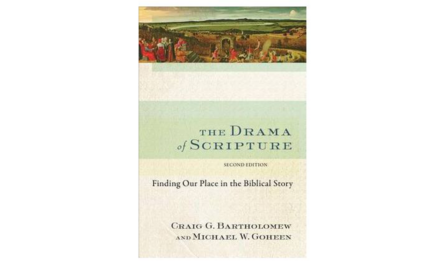By Dan Kimeu
“The most powerful thing on earth is not God, but man’s will!” chimed a charismatic preacher amidst cheers of his congregants. This statement, and many others alike, reflect one of the most profound theological tensions throughout Christian history — the relationship between man’s free will and the sovereignty of God. If God is sovereign, does that render human will meaningless? Conversely, if human will is free and superior, does that limit God’s authority?
Today, this question has taken on new relevance, especially in light of modern teachings within the Word of Faith and dominion theology, which aim to empower believers with boldness and free agency. In doing so, they have inadvertently distorted the biblical understanding of who God is and how He operates in the world. The human will has become almost untouchable in many contemporary circles. God, it is said, cannot interfere unless man allows Him to. Prayer has become a transaction rather than a relationship. We are taught to “decree and declare,” to “command” outcomes, and in some cases, even to command God, as in the famous words of Chris Oyakhilome, “Kings don’t beg, they decree. They have only one destiny, and that’s to reign. God has made you king. Reign and rule, refuse to beg!”
These ideas are often presented in such empowering terms: You are the prophet of your own life. You determine your destiny. God is waiting for your words to act.
This theology can be traced through teachers like the late Myles Munroe, who taught that God gave man dominion over the earth and, therefore, limited Himself from acting within it without man’s permission. While this sounds bold and exciting, it introduces a dangerous imbalance. God is no longer the sovereign ruler of all things, but a participant who must wait on human consent.
What makes this perspective so dangerous is its subtlety. It appeals to our desire for control and importance. It sounds biblical, even spiritual. But when followed to its logical conclusion, it raises a disturbing question: Who really holds the reins here — God or man’s will? And as such, who is responsible for human life?
What’s the right perspective?
The biblical answer to the tension between God’s sovereignty and man’s will is found in the doctrine of providence. As American pastor and Bible teacher John Piper defines it, providence is the “purposeful sovereignty” of God. God is powerful, and not just powerful, but His power is always directed toward fulfilling His wise and loving purposes. He doesn’t necessarily react to human choices; He ordains, allows, and guides them, even when they seem contrary to His moral person. “The heart of man plans his way, but the Lord establishes his steps.” (Proverbs 16:9)
Providence assures us that God is not a passive observer, but He is working through human decisions, even rebellious ones, to establish His purposes. This includes sinful choices and evil actions. Consider Joseph’s story in Genesis 50:20,“As for you, you meant evil against me, but God meant it for good…” This wasn’t God cleaning up a mess after the fact. He was sovereignly working through the brothers’ jealousy, their betrayal and Joseph’s suffering to accomplish a greater purpose.
Similarly, Peter says of Jesus’ crucifixion: “This Jesus… you crucified and killed by the hands of lawless men. God raised him up…” (Acts 2:23). Even the most unjust act in history, the murder of the Son of God, was not outside God’s plan.
We can already see the pattern that God’s providence doesn’t eliminate human will, but neither is it threatened by it. In his commentary on providence, Wayne Grudem introduces the concept of concurrence, indicating how God cooperates with created things in every action, directing their unique properties to act as they do. Concurrence means that God and human beings (and other created things) both act at the same time to cause events. Our choices are real. They matter. But God is never left out of the equation. His sovereign will works through, not in spite of, our actions. No event in the whole creation falls outside God’s providence. None! “[God] works all things according to the counsel of His will…” (Ephesians 1:11).
God is never left out of the equation. His sovereign will works through, not in spite of, our actions. No event in the whole creation falls outside God’s providence. None!
When we forget this interaction, we begin to elevate human will above God’s. We start to believe that God is limited by what we say or do. In the name of faith, we replace submission with control. And in the name of prayer, we issue commands rather than offer humble petitions.
Have you listened to how we sometimes pray? We don’t ask God for His will; we tell Him what to do. We don’t seek His purposes; we decree ours without pausing to consider whether our will aligns with His. This language, while seemingly bold, reveals a man-centered theology. It exalts the creature above the Creator. It makes us the initiators and God the responder. In this worldview, we become co-creators of reality, and God becomes our assistant rather than our Lord.
Such theology has inadvertently led to disillusionment and burnout. If we are responsible for our success, then we are also to blame for our failures. If God can only move when we say so, then He is no longer sovereign, but our subject.
Properly understood, the true doctrine of providence doesn’t minimize human will but rightly puts it in context. Our decisions matter, and as such, we are responsible for them. But God is ultimately in control. That does not threaten our dignity but is a foundation of our security, now and eternally. “And we know that in all things God works for the good of those who love him, who have been called according to his purpose” (Romans 8:28).
God is not struggling to bring order to chaos. He is not surprised by human choices. Even when we disobey, He is not derailed, and neither is He changed by our unfaithfulness. He is working all things — all things — together for His glory and our good if we love Him. That includes your choices, your circumstances, and even your mistakes.
God is not struggling to bring order to chaos. He is not surprised by human choices.
In conclusion, the question we must answer is not whether God or man is more powerful. That answer is clear: God is. The real question is whether we will acknowledge His authority or continue to assert our own in the name of human will. We were never meant to carry the weight of being god-like, and definitely, we don’t need to be more powerful than we are. We are called to trust, obey, and submit, but not to control outcomes.
So, let’s stop trying to relegate God to doing our bidding and start surrendering to Him. Let’s allow His sovereignty to humble us, and His providence to comfort us. Because the One who rules the universe is not just powerful, but He is good and is working all things for His glory.
Dan Kimeu is a pastor based in Nairobi, speaker and author of “Forgiveness: Love and Grace Unchained”.



